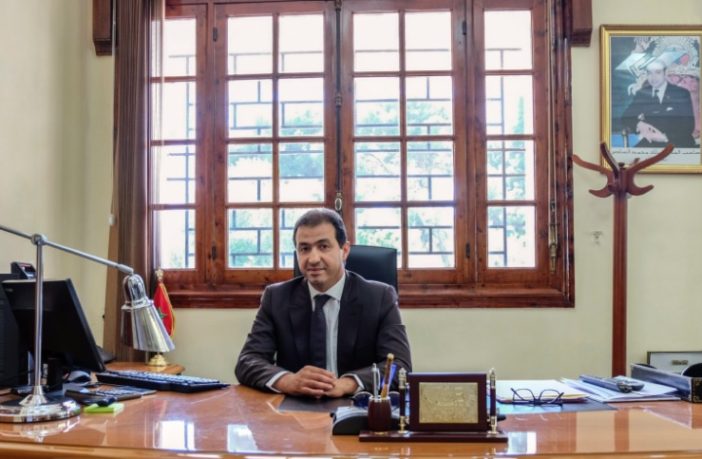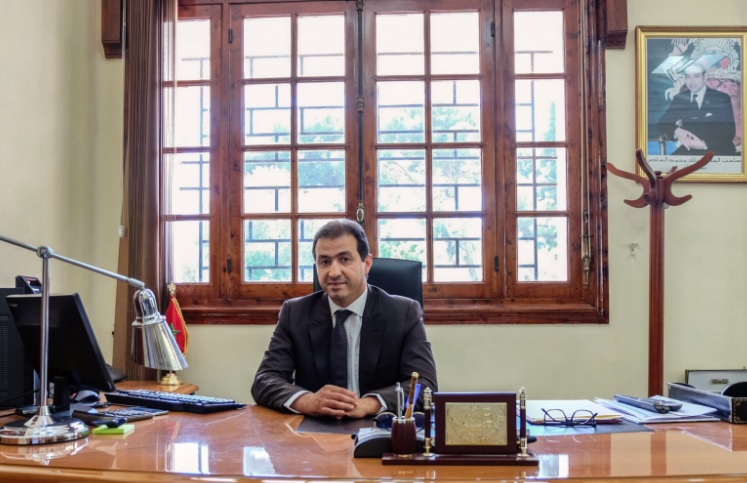Fox News
By Amira El Masaiti/AP
Khalid Zerouali, director of Migration and Border Surveillance in Morocco’s Interior Ministry, poses for a photo during an interview with the Associated Press in Rabat, Morocco, Thursday, May 16, 2019.
Khalid Zerouali said the North African kingdom, now migrants’ main gateway to Europe, is using new tactics to cut into the surge of migrants, aborting about 25,000 attempts to reach Spain so far this year. (AP Photo/Nadine Achoui-Lesage)
The North African kingdom of Morocco is using new tactics to cut into the surge of migrants seeking to use it as a springboard to get to Europe, stopping about 25,000 attempts to reach Spain so far this year, mainly via the Strait of Gibraltar.
Border security chief Khalid Zerouali said in an interview with The Associated Press Thursday that this represents about 30 percent more failed bids to cross to Spain, mainly between February and April, compared with the same period last year.
In addition, 50 human trafficking networks have been dismantled in 2019, he said, up 73 percent on this time last year.
“We have been very tough on criminal networks,” he said.
“Vulnerabilities along the (northern) coast” were identified, eliminating “niches for smugglers” who used those points to make crossings, the border chief said.
Surveillance technology and reinforced manpower have helped increase vigilance, he said. He did not elaborate on technology used.
Zerouali rejected critics’ claims that human rights are often disregarded in the crackdown, or that the Moroccan Royal Navy has failed to reach migrants whose flimsy boats are in trouble.
Last year, migrant arrivals in Spain eclipsed those to Italy and Greece, with some 60,000 people reaching the country, almost all of them by sea. Those figures started falling dramatically in February.
However, migrants continue to try to defy obstacles.
Just days ago, Moroccan authorities said three boats carrying 117 sub-Saharans were stopped from setting sail. On the same day, migrants staged an assault on razor-wire fences separating Spain’s Melilla enclave from Morocco. Forty people were arrested, while 52 managed to cross.
Most migrants looking for a stepping stone to Europe are from Africa, and mainly west Africa, but some Asians also have shown up in Morocco, Zerouali said.
“As a matter of fact, we dismantled a network active between Bangladesh, India and North Africa dealing with migrants,” he said.
The EU and Spain have increased aid and cooperation with Moroccan authorities. However, the border chief said the 140 million euros pledged to Morocco, being divvied out in stages, is not enough.
“We spend more than that in a year,” he said.
Morocco is working with the European Union “on how to sustain such assistance in a continuous way,” he said. “It should not be only one shot.”
Human rights experts have warned that outsourcing Europe’s border control to North African countries creates a risk of human right violations. Amnesty International last year denounced a Moroccan crackdown on sub-Saharan migrants, including alleged mass roundups and expulsions without due process.
Activists are also concerned that EU countries are leaving sea rescues to Morocco and other North African countries with fewer resources and experience, potentially putting lives in danger.
In March, 45 migrants died trying to cross the Mediterranean Sea to Spain, Spanish rights activist Helena Maleno, who runs the Tangiers-based group Walking Borders, said at the time.
Zerouali said that last year Morocco rescued some 30,000 migrants and “today, our operations in the maritime domain are more than excellent.”
Morocco does not make statistics on migrant deaths public.








